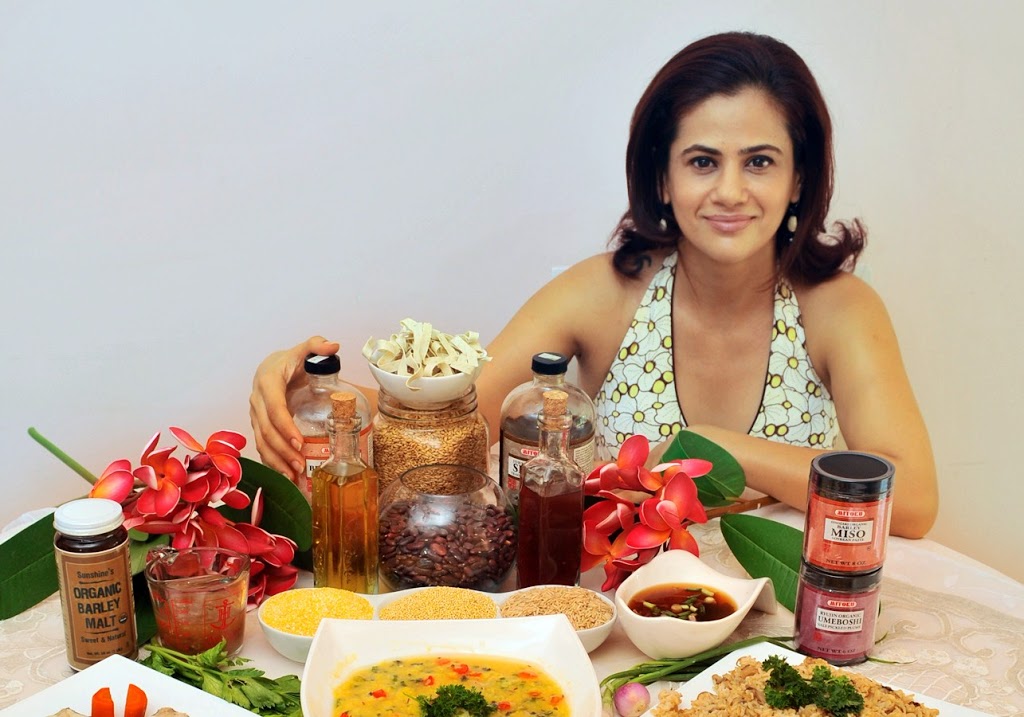Five Reasons why with Our Larder Full of Grains, We Find it Hard to Go Vegan
Human eating habits have undergone a sea change in the last couple of decades. So much so that if somebody born in the 1800s were to visit the planet now – they wouldn’t recognize 90% of the items we call “food.” For example, a packet of chips or bread or cupcake might look alien to somebody who had lived in a previous century. Industrialized production, shelf stability, and packaging has made sure that “food” survives weeks and months without perishing. This has given birth to a slew of processed foods. Further, with the advent of the Internet, social media platforms such as Instagram, has taken food worship to whole new levels – where Indians are eating donuts, Americans are eating chapati, Japanese are eating burgers, while the entire world is eating hummus. You get the drift, right?
In the pre-World War era, agriculture was a major occupation. Food was freshly made with locally available ingredients. There were no refrigerators, plastic wrappers, or supermarkets. So, people cooked with seasonally available local ingredients, and recipes were passed from generation to generation. In short, people ate healthier and lived longer.
Then came the era of industrialization with machines, plastic, marketing, and supermarkets fueled by the rapid advent of transportation, cold storage, and air travel. Food began to be treated as a “commodity” by organizations who wanted nothing but profits. Meat and dairy rose as profit making food industries. With deep pockets, they began to push their ‘products’ aggressively. It was just a matter of time they would realize the benefits of the franchise system – and the world became their playground.
Cut to 2018, we are witnessing a paradox. While on one hand, more and more people are turning vegan in the world today, on the other hand, there is an overwhelming majority who are looking the other way, burdened under the bulk of all the food myths and formed habits.
So this begs a question: with our larder full of grains why we do we find it difficult to go vegan? I have used “grains” here as a metaphor for everything derived from plants – grains, lentils, beans, fruits, vegetables, seeds, nuts, leafy greens…
Let’s dissect the reason, here are five points to consider.
1- Addiction
Addictions are difficult to break, whether it is of smoking or meat eating. Most people now acknowledge smoking is bad. This wasn’t the case in the 60s, where doctors were roped in to advertise cigars. A smoke addict trying to de-addict oneself, will first try to cut themselves off from situations or places where they are likely to pick a cigarette.
However with meat-eating, most people refuse to believe in the first place that they are addicted to animal-based foods. Therefore, they refuse to break the habit. In 2015, the World Health Organization (WHO), released a report where they didn’t mince words and clearly announced that processed meat acts as a carcinogen – something that is a causal factor for cancer. The general reaction was of “disbelief, denial, and anger” towards the WHO announcement as PETA described it. Meat-eaters came out vociferously calling the report a sham and refused to change their eating habits. Some insisted that they’d rather die than stop eating bacon.

Such extreme reaction is not surprising because meat and other animal-based food contain opiates or drug-like chemicals that get people “hooked,” making them crave for more (many of us are familiar with the cheese craving!).
However, it has been proven that taming the mind makes it less difficult to get away from the meat-eating addiction. In fact, The Physician’s Committee for Responsible Medicine (PCRM), PETA, and many such organizations run vegan Kickstarter programs where along with the palate, the program aligns the mind to plant-based eating habits. Over the years, such programs have helped many people to go vegan.
2- Meat and Dairy Lobby
Have you seen anybody promoting spinach, potatoes, or beetroot…. no? Meat and dairy companies, on the contrary, run massive propaganda campaigns programmed to provide us the unmitigated impression that dairy and meat is necessary for human survival. The “Sunday ho ya Monday, roz khao andey” and “Dhoodh Dhoodh” campaigns ran for years to lull people into buying more meat and dairy. Amul is a classic example, where marketing caused a small cooperative society to become a global behemoth. When the young and impressionable watch these advertisements from childhood, they turn into lifelong customers.
Sadly, the dairy industry feeds the meat industry and are inseparable. Vegetarians don’t help the cause when they consume the by-products of a much larger and heinous crime – of that of forcefully and artificially impregnating cows, starving male calves to death or for leather, torturing and killing female cows that are past their milk yielding cycle as they are no longer considered fit for business.
Until we understand that the meat and dairy industry thrives on advertisements, meat and dairy harm our bodies, and that we don’t need to consume anything with a face and central nervous system to stay alive and healthy, we will keep opposing the idea to go vegan.

3- Fad Diets
One of the barriers for people to go vegan is the confusion that fad diets create. For instance, Keto is fat-centric, Paleo is protein-centric, Atkins is low-carb, each at the expense of drastically reducing/eliminating other components and focusing on increasing certain macro components, such as protein and fats. In other words, fad diets eliminate certain food groups, limiting to only specific food groups. Not only are these harmful in the long term but the proponents of such diets regularly vilify plant-based diets, which if taken in a balanced manner, provides the human body with the required nutrients.
The focus of any diet plan should rather be on emphasizing the importance of nourishing the body with vitamins, minerals, and essential nutrients.
Now, let me pose a simple question or two: Do fad diets sound like a healthy, long-term weight loss plan? Are they even sustainable? This question lingers without any conclusive answers.
I want to remind that the human body is like a chemistry lab. We shouldn’t be setting up our system to starve or turn it into a fat-burning machine. We need a balance of protein, carbs, and fat. Even if our favorite celeb says they do a juice cleanse all day long and nothing else. This sort of calorie restriction will result in temporary weight loss but in the longer term is not sustainable, nor healthy.
One must be able to maintain their diet for an extended period of time in order for it to yield sustainable weight loss, at the same time maintain a physically healthy body. Hence, one must consume from all food groups. Plant foods provide adequately from all food groups – a unique combination of carbs, proteins, and fats.
Therefore, nutrient-wise, a vegan diet is balanced – even if you are not meticulously planning your diet, a typical Indian diet of rice, vegetables, pulses, salad in my opinion easily provides 15-20% protein, 60-70% carbs, 10-15% fat. Hence, it is far from a “fad” diet.

4- Culture and Conditioning
Most people share a deeply emotional relationship with food, the seeds of which are sowed from childhood. Habits are entwined in folklore and religious rituals. So, dietary choices are influenced by family, friends, direct and indirect surroundings, and of course, our bodies pick the acquired behaviour and taste.
Have you ever wondered why coastal inhabitants consume seafood and cold countries consume more berries? Because these are readily available in the particular geography and some of these habits when set in childhood are hard to leave.

Some people have diets forced upon them by family and friends. Yes, close friends and family play a critical role in a person’s success with any dietary change. Do they accept it? And if they don’t, how comfortable/uncomfortable will life be? Once a person resolves to go vegan, they usually encounter resistance from immediate family and friends. Most people who come out from the habit of consuming animal foods are able to do so due to the consistent direct and indirect support from friends and family.
So, culture and conditioning have proven to be among the toughest barriers on the path of veganism. As activists, we often mistake people’s inability to change their food habits to go vegan for “hypocrisy.” However, it is much more than that.
5- Internet and Junk Science
Internet has been a great leveller. Not very long ago, one had to study medicine and nutrition for years to be able to grasp the basics of nutrition. Doctors were revered and considered the final authority on the matter. However, as information became more and more widespread, and more and more people got access to medical journals, it gave rise to your neighbourhood nutrition expert.
Anyone giving nutrition advice has an ethical responsibility to ensure that the information they provide is accurate. However, such ethics is not followed. Watch an Instagram feed and you will be amazed at how the hashtag ‘clean eating’ has been hijacked. People have been posting eggs, meat broth, etc. as #cleaneating.
On the other hand, there are people on the opposite end of the spectrum who will make you believe that adding kale to everything is the elixir of life and the rainbow salads, nut butters, and smoothies will help melt the extra weight. Nothing can be farther from the truth.
Internet is a double edged sword. It shows us what we want to see. For example, there are plenty of articles on how bad dairy is and then there are those proclaiming the virtues of dairy. Who does one believe? This dichotomous nature of the Internet confuses people. And this confusion does not make it any easy to go vegan.
With evidence mounting up and the current healthcare system struggling to cope, speakers on whole-food, plant-based diet such as Dr. Michael Greger offer hope for a revolution in the way that we treat patients in the future. He says:
We simply can’t pay for such increases in dietary-based illnesses and disease. Something will have to change. The answer is simple, switching to a plant-based diet. This is the most economically and environmentally sustainable way to reverse the trend.
Dr. Michael Greger
Dr. Greger concludes, “The turning point will be the realisation of government organisations and the public that meat causes cancer, traditional diets are not nutritionally sound, and there is a simple alternative to help prevent disease – go vegan!”
Endnote:
Veganism is not a diet; it is an ethical position against the exploitation of animals.
-Anon
~~~~~ About the author: Vijay P is a plantpowered ultramarathoner and a student of sports nutrition for over a decade.



Pingback: Vegans are Preachy, Arrogant, Pushy, Self-righteous… - Vegan India!
Hi Vijay,
Thank you for this piece on compassionate food.
Please mention all specific plant foods people must include on a daily or weekly basis in meals to get all:
1. Essential amino acids
2. Essential fats
3. Essential vitamins (eg. B 12)
…necessary for body function.
Thank you.
Sure Amit, such can be done in a separate post. Thank you.